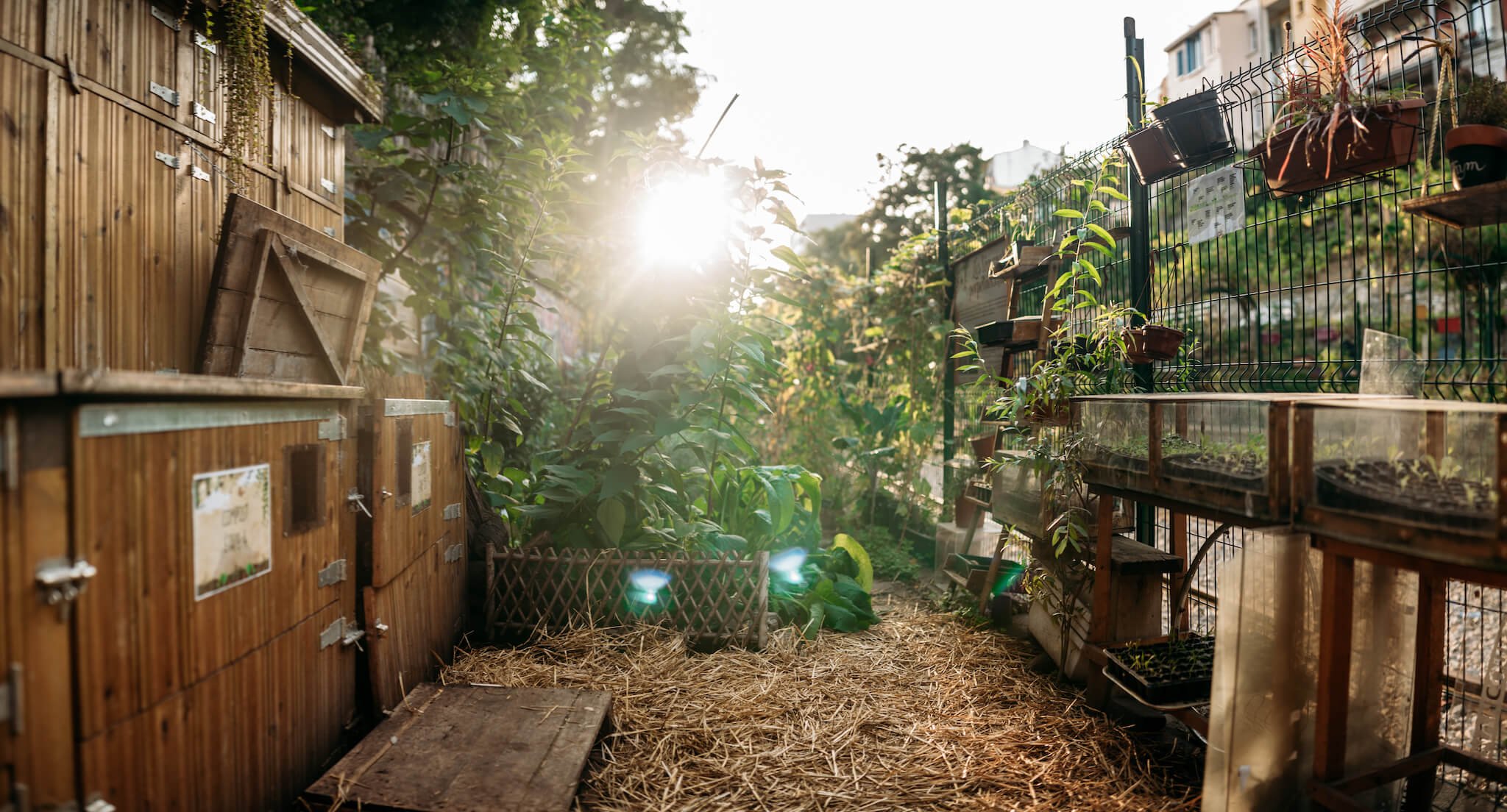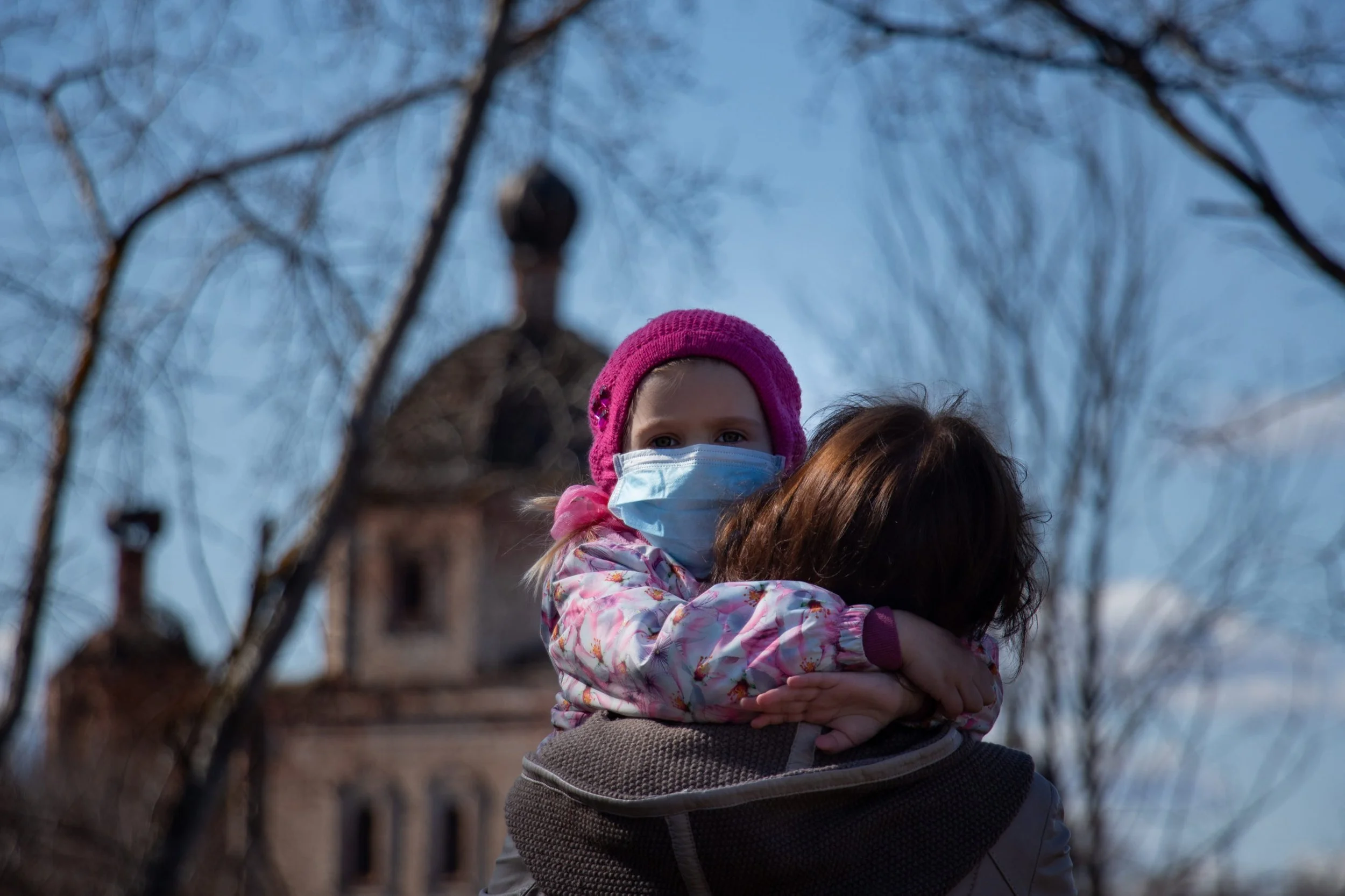
Creating a Better Future
Time For Change
-

The world is at a tipping point and we face a question: do we continue on our path, or do we grasp our opportunity for change?
The latest IPCC report is clear, without change we are facing the destruction of the ecosystems that our lives depend on. Here in the UK, Oxfam paints a stark picture, “The UK significantly outstrips proposed boundaries in nearly all of the environmental domains identified – [...] by 55% in terms of biodiversity loss; by 410% in terms of climate change (measured by emissions of MtCo2/year).”
In 2019, the UK Government committed to net-zero greenhouse gas (GHG) emissions, however it is not currently on track to meet the carbon budget targets set for 2025 and 2030.
The Climate Change Committee warns there is a “growing gap” between the risks that Britons face from the climate crisis and the action being taken by the government to adapt to them.
We need to adapt to this new reality.
By building our collective resilience and supporting our communities we have the power to create a better, fairer, living world. There is hope, and this is our chance to grasp it.
-

Changing our consumerist habits.
Our throwaway culture is based on obsolescence: the obsolescence of function. Of quality. And of desirability. This keeps demand high. As a consequence, the UK produces more electronic waste per person than anywhere in the world apart from Norway at 23.9kg a year per person, with only 59% being recycled. Most often, we bin our old devices when we believe they are broken beyond repair.
The UK is also the fourth largest textile waste producer in Europe, averaging 206.4 tonnes a year. We quickly — and dangerously — fall out of love with our clothing, with 1 in 3 women considering an item ‘old’ after only three wears.
In London, the city incinerates the largest amount of waste (59.3%) compared to all other regions, and recycles the least (30.2%). In 2016 alone, 560,000 tonnes of CO2e emissions were produced from incinerating London’s waste.
We need to change our appetite for newness, and instead look to renew and care for what we have. A circular economy will encourage us to preserve and repair. We need to move to a mindset where our belongings have life-cycles, not shelf lives.
-

Fighting income inequalities.
The Oxfam report paints a stark picture of the UK in 2014, “Inequalities in the distribution of the UK’s wealth are causing deprivation across many indicators, as people find themselves out of work, unable to afford to heat their homes and forced to visit food banks or simply go without enough food.” Recent data published by the ONS explains that “the gap between the richest in society and the rest of the population has widened over the 10-year period”.
The recent report from the Food Foundation showed the impact of the pandemic on food security, putting even more pressure on the current crisis. “When it comes to food, more people are food insecure now than before the pandemic. [...] Covid-19 has dramatically widened inequalities in food security and nutrition. BAME communities have consistently encountered disproportionately higher levels of food insecurity compared with white ethnic groups.”
This shocking situation has a dramatic impact on mental health. The number of people living with mental health problems has risen every year since 1993. Naturally, the Covid-19 pandemic has also had an impact, with four in ten adults sharing that the pandemic has had a negative effect on their mental health.
In London, net income inequality has risen gradually in London over the last 20 years. In contrast, it has been relatively stable in England overall.
We need to create a society where everyone feels supported and seen. We need to work on providing a social foundation so people in need can receive adequate help.
The Village aims to create a safe and just space which will build our collective resilience.
We will make an underused building our home, where all the local community are welcome. We will serve as a social foundation for local communities whilst respecting the ecological ceiling where the environment, ecosystems and all forms of life are respected.
Using the Ellen MacArthur Foundation framework, The village will adopt circular economy principles that prioritises practices such as regenerative design, restoration of products and a shift toward materials with lower carbon emissions.
Organised in four pillars of resilience, the project will host a large variety of initiatives all under one roof.
Building a future we want to live in.
We are guided by restorative and regenerative practices, respecting all forms of life and acting as trustees and guardians of our environment rather than extractors and consumers. We aim to look seven generations forward being mindful of the impact of the actions we take now on all future inhabitants of the Earth.
This philosophy will guide our behaviours at The Village, from our approach to materials to selecting our partners.
Picture @Simon Lemarchand
Our Goals
Turning vacant buildings into thriving ones
London is full of empty buildings - a wasted opportunity to serve local communities. We will manage and transform empty spaces into resilience hubs.
Preparing for the future.
We are facing an uncertain – and potentially unstable future – due to the climate & ecological breakdown. We want to help communities get ready for this by building their collective resilience as well as modelling a new system of living which is more ethical and sustainable. Ultimately, we want to pave the way to a future we want to live in.
Supporting those in need.
A better future is one where everyone is supported. We aim to help people develop the tools and skills they need to support themselves by providing time, space, and resources in a welcoming environment.
Reducing our environmental footprint.
As an organisation, we aim to be carbon neutral and support a circular economy. We will use our knowledge and network to help people around us reduce their environmental footprint, too.
Building stronger community ties.
It is easy to feel hopeless and alone. We can’t survive without a strong local support system. We aim to create a strong, connected and resilient community. In the process, we want to help people reconnect with their power to act through the collective.
Creating inspiring, welcoming, and inclusive community spaces.
We aim to create a space where anyone and every part of everyone is welcomed, free of discrimination. It will be a humble and beautiful space which, we hope, will inspire others to start their own Villages.

